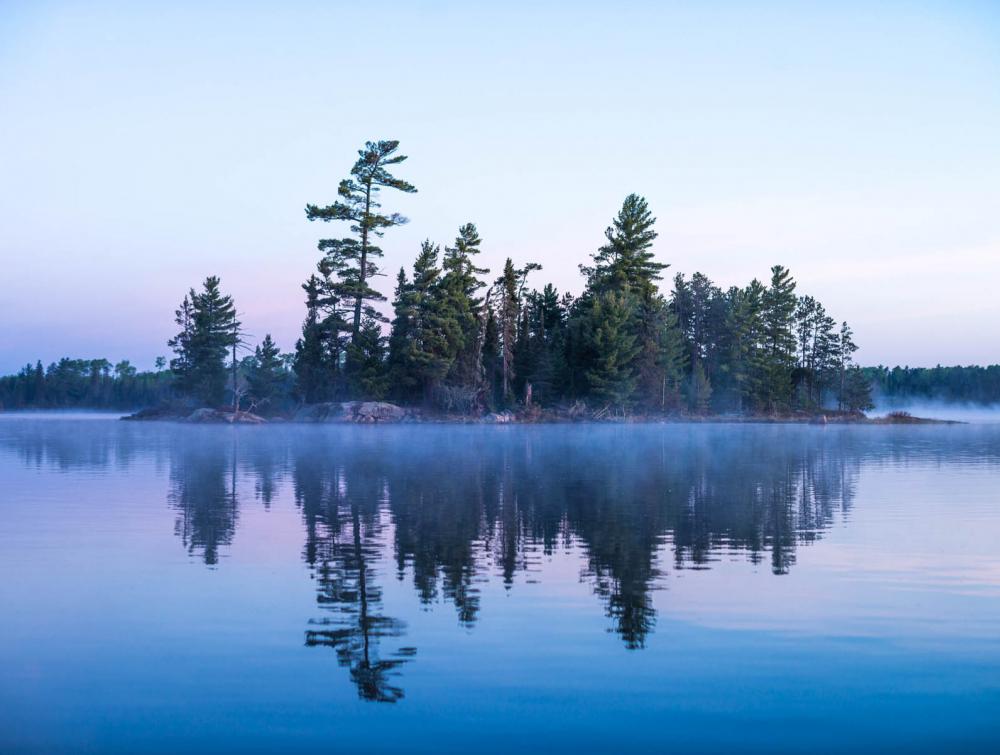Senator Smith urges science-driven decision making for Boundary Waters, TWS agrees

Boundary Waters Canoe Area Wilderness, Minnesota.
Erik Fremstad.
If the Biden Administration reinitiates the Environmental Assessment, science will make clear that the Boundary Water Canoe Area Wilderness is no place for a sulfide-ore copper mine
Earlier today, Senator Tina Smith (D-Minnesota) issued a letter urging the Biden Administration to reinstate science-based decision making on mineral leasing and permitting near the Boundary Waters Canoe Area Wilderness. The Wilderness Society strongly supports her call for a mineral segregation, which would also reinstate an Environmental Assessment (EA) that was cancelled by the Trump Administration.
“We applaud Sen. Smith for taking the right steps on the path to ensure protections for the vulnerable landscape surrounding Boundary Waters Canoe Area Wilderness, and believe that reinstating the environmental assessment will prove that an administrative withdrawal is necessary,” said America Fitzpatrick, Senior Government Relations Representative at The Wilderness Society, “The science will demonstrate to the public that a permanent mineral withdrawal is the only long term solution to protect the pristine and beloved Boundary Waters Wilderness. This is the wrong place for the wrong mine.”
The Biden Administration has committed to restoring science, confronting climate change, and conserving 30% of US lands and waters by 2030. Senator Smith’s statement calls on the Biden Administration to initiate a withdrawal process and reinstate an Obama-era Environmental Assessment (EA), which was halted by the Trump Administration after mineral lease applications from Twin Metals were initially denied. The EA was canceled 20 months into the 24-month review period. Under the Trump Administration, political interference and due process violations resulted in the fast-tracking of a sulfide-ore copper mine owned by a Chilean-owned mining company linked to the Trump family. The mine would have devastating impacts on the Boundary Waters watershed.
Covering more than one million acres, Boundary Waters is the largest wilderness area east of the Rocky Mountains and north of the Everglades. It is home to gray wolves, black bears, moose, and fish such as largemouth bass and sturgeon. The Boundary Waters Canoe Area Wilderness is also one of the most visited wilderness areas in the U.S., with nearly 150,000 visitors annually.
The Boundary Waters Canoe Area Wilderness is especially susceptible to pollutants from acid mine drainage, which can contaminate the land surface, soils, and groundwater. Because of its inherently polluting nature, the Environmental Protection Agency (EPA) has called hard-rock mining (or sulfide mining) the most toxic industry in the country. The pollution from sulfide mining is nearly impossible to contain and can last for hundreds, even thousands of years.
Studies estimate that if sulfide-ore copper mining were to take place in the region, it would result in the loss of over 4,490 local jobs and nearly $288 million in lost revenue from visitor spending. Notably, an independent study from Harvard University showed that protecting Boundary Waters from the Twin Metals mine would result in dramatically more jobs and income over a 20-year period than the proposed mining activity would.
The Wilderness Society strongly urges Senators Smith and Klobuchar to introduce a Senate companion bill to Rep. Betty McCollum’s Boundary Waters Protection & Pollution Prevention Act to permanently protect this unmatched landscape.
CONTACT: Jen Parravani, The Wilderness Society
(202) 601-1931 | jparravani@tws.org
